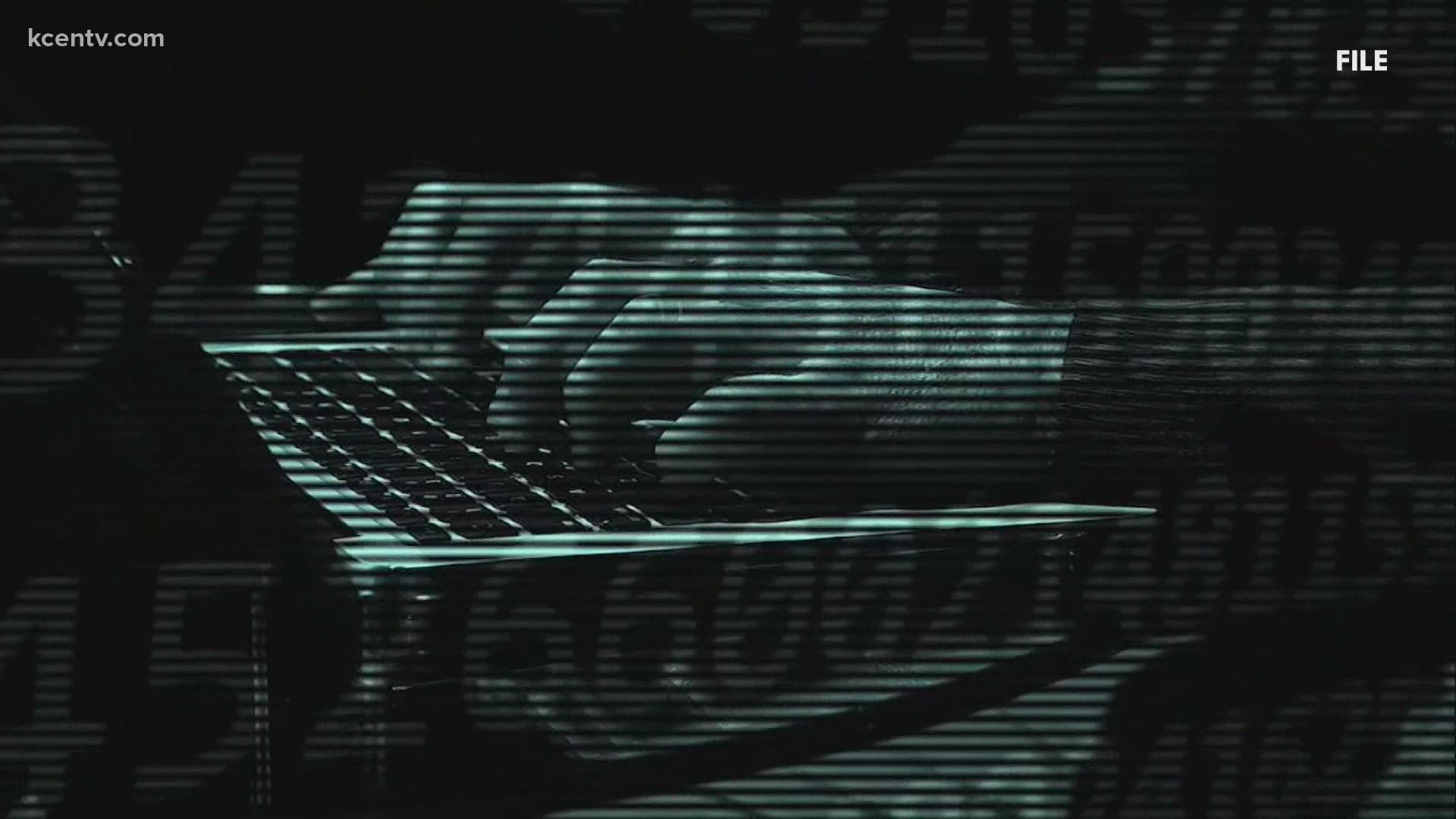TEMPLE, Texas — Malware infections, data breaches and cyber attacks have been on the rise for the last ten years according to industry experts.
The number of reported data breaches has risen to its highest level ever last year, jumping 68 percent -- that's according to a report from Identity Theft Resource Center.
"These hackers and these bad actors, they know where to go and they know where to find it," said Gail Wallin, the interim assistant vice president of the Information Technology department at Texas A&M University-Central Texas. "I always say they're waiting in the loom; anyone could fall prey."
She says hackers have become more sophisticated and frequent and cyber security has now become a global priority.
"We had to make some adjustments and people are not aware of the complexity of the type of attacks that we're going to become part of our lives," Wallin explained.
Individuals, small and large businesses are making the investment to stay secure but the cyber industry is needing lots of help to keep up with the demand.
In the last couple of years school districts, colleges and universities in Central Texas have been making a larger investment in cyber security programs. They're wanting to provide more education and research to the growing field, as well as help the shortage of professionals in cybersecurity.
"The importance of cybersecurity is only going to grow partly because you know, the increased reliance on technology and computer networks, whether you're individual or organization, we're relying on technology and systems every day," said Dr. Anitha Chennamaneni, the department chair of the Computer Information Systems program at Texas A&M University-Central Texas.
Her program was awarded a $4.2 million cyber security grant to create a hub for advancing cyber security research, education and workforce development.
"One of our goals is to develop a strong pipeline of diversified cybersecurity talent here in Central Texas region; to meet the unmet needs not only of the region but of course, across the country," Chennamaneni explained.
The U.S. Bureau of Labor Statistics predicts that the jobs for cyber security professionals are expected to grow by 33 percent between 2020 and 2030. That is much faster than the average occupation, according to the government agency.
Joshua Wilson, Temple College's Computer Information Science department chair, says Central Texas is already seeking employers in the cybersecurity industry.
"There was an industry need according to market statistics, and then I met with the advisory board for computer information systems and we talked about it and there is a need from our local employers to," he explained.
Local educators like Wilson are trying to fill the gap and demand of cybersecurity professionals by providing more opportunities for them in the classroom.
Students in programs at Texas A&M University-Central Texas and Temple College are getting hands on, real-world experiences when it comes to cybersecurity. In class or lab, students are code breaking, programming, networking, and developing new encryption.
"Most of it is more about defense and knowing when you've had a breach of data, or a breach of security, verses we're going to stop it because it's ever evolving," Wilson said. "You have to be able to recognize it first and then learn ways to stop it."
It's an initiative to start them young and there is a reason behind that. Denise Ayres, director of Temple Independent School District's Career and Technical Education (CTE), says it's vital to open this door of opportunity to the next generation of workers because cybersecurity spans across all industries.
"While the generation today is very familiar with technology, certainly there's a screen in front of students almost all the time, being familiar with technology is different than understanding cybersecurity," she said.
Funded through a grant, Temple College has partnered up with TISD to provide cyber security dual credit options to their students. The institutions received a $1,486,204 grant from the U.S. Department of Education to expand the cyber security curriculum on both campuses.
"We want to be able to tap into a skill set that they're not afraid of being the technology, but really channel that skill set to something that will be productive career-wise," Ayres added.
Ayres says the cybersecurity program through CTE has proven to be very successful and very interesting to students as they have an overflow of requests.
"We've seen our cybersecurity program grow in numbers with each year that we've had it," she said. "We are now at a point where the classes are full."
These educators and program leaders are hoping they can turn the interest into a talent for stopping cybercrime.
Temple College has some grant money available that provides money for tuition and books for those in the cybersecurity program.
Dr. Chennamaneni says the majority of the jobs in cybersecurity recommend or require at least a bachelor's degree.
The Computer Information Systems program at Texas A&M University-Central Texas will be hosting one week cybersecurity camps for students at the K-12 level this summer. Dr. Chennamaneni tells 6 News the camp will introduce them to fundamentals of cybersecurity, cybersecurity trends, best practices, cyber hygiene and online safe behavior. In addition, they'll get introduced to the job market, career opportunities and degree programs.

